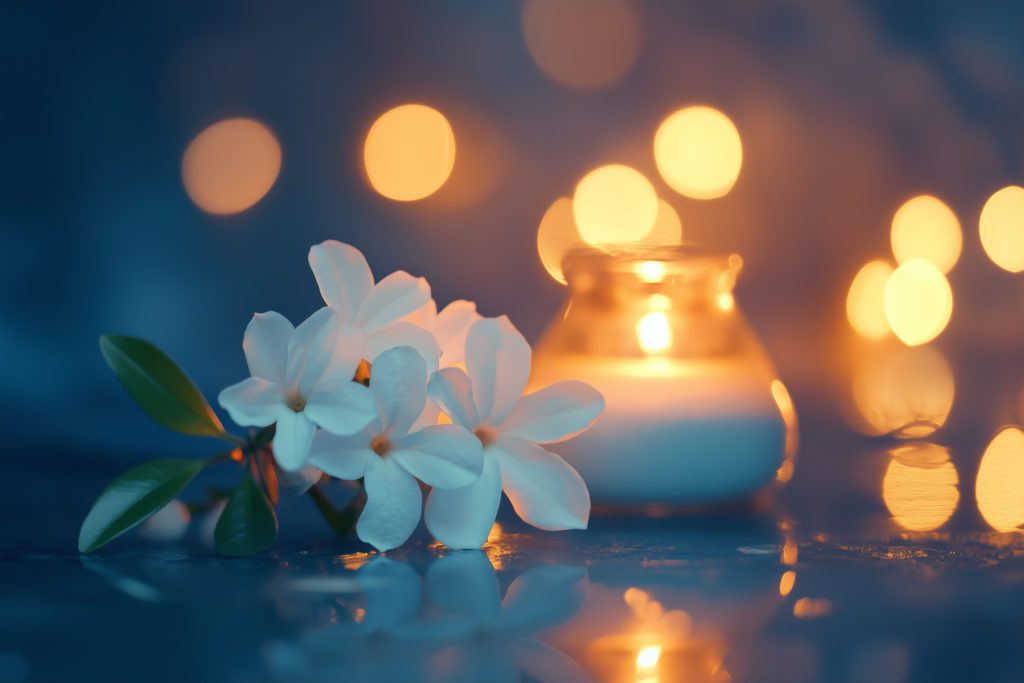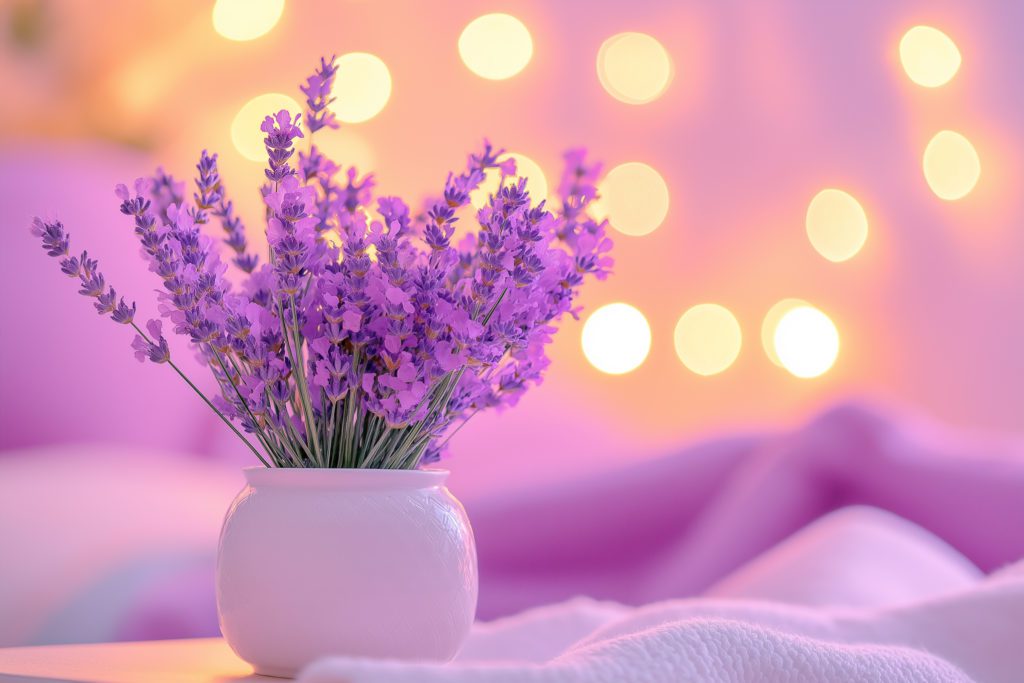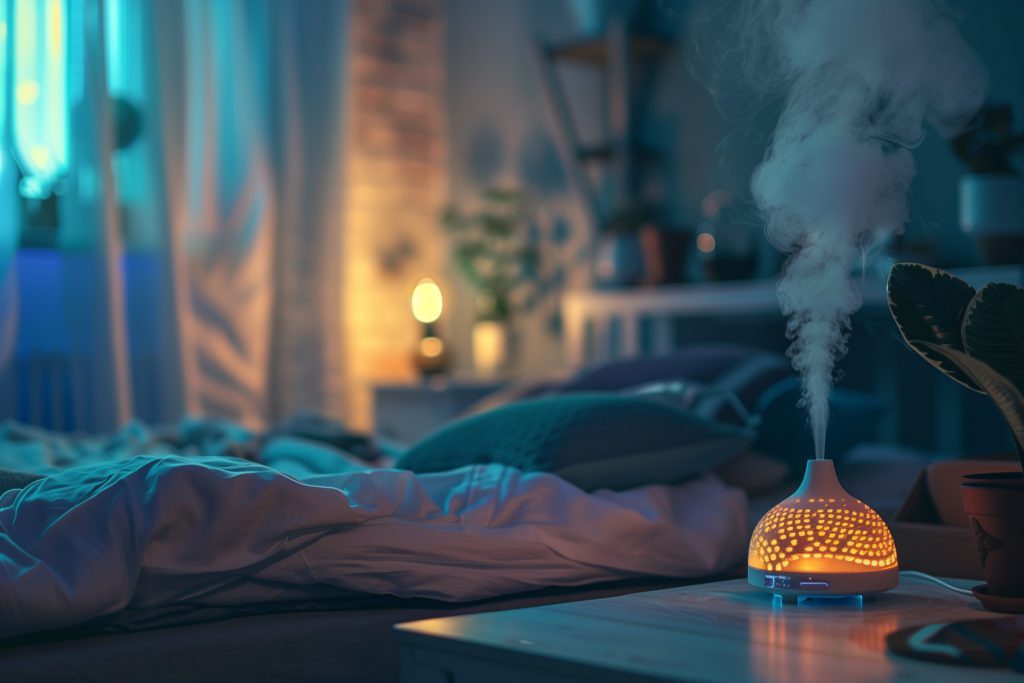
Aromatherapy and Sleep: The Power of Plant-Based Scents
Looking for a way to relax and unwind before bed? Read on to learn about the power of aromatherapy and how it can benefit your sleep.

Aromatherapy has been around for many years and is used for a variety of functions. Essential oils are extracted from plants and deliver a number of benefits, from alleviating pain to promoting sleep. However, in this article, we’re going to explore how aromatherapy can benefit your sleep, including what specific scents you can use in the bedroom to ensure you get adequate rest.
First, we’ll discuss the science behind aromatherapy and sleep and why it benefits us so much. From there, we’ll get into some of the most common essential oils—including lavender and sandalwood—and some practical ways that you can incorporate aromatherapy into the bedroom. Without further ado, let’s discuss the science behind this plant-based practice and why it works so well for our sleep.
The Science of Aromatherapy and Sleep
You might think that aromatherapy is simply a matter of preferring certain scents over others, but there is actually a bit of science that can explain why we react to these scents. Aromatherapy is typically best practiced through inhalation, massages, and bathing in essential oils. When you are around these scents, what happens is that the aromatic molecules will enter the human body after you breathe them in or they have made contact with your skin (Source: Complementary Therapies in Medicine).
When this happens, the molecules actually affect the limbic system, passing through a part of the brain called the hypothalamus. Because of this process, we feel less stress, more relaxed, and ultimately, an improvement in our nightly rest and recovery. This is even true for aged populations, as one study showed that administering essential oils for one month, specifically lavender oil, actually led to better sleep quality and less fatigue.
So, aromatherapy does have a unique reaction with the body, but what scents are best for sleep? There are plenty of options to choose from!
Key Plant-Based Scents for Sleep
Because of the way that aromatherapy interacts with the body, it is worth considering how to use these scents to your advantage. However, you have to know what scents are best for sleep and precisely what each of these scents can do for your rest. Here are the best scents for sleep, as well as why they work so well:
- Lavender: Many people have called this the best essential oil for sleep because it can relax you, soothe your senses, and ease your mind. It’s been used since ancient times, not just for its delightful scent but because of how it makes people feel.
- Chamomile: Closely related to lavender is chamomile, another essential oil that is known to assist with sleep. You may even experience a lowered heart rate and blood pressure, helping you truly unwind when the time comes and the sun sets.
- Cedarwood: Known for its distinct scent, cedarwood has been proven to actually provide longer sleep duration for those who use it on a regular basis. Many people were also less likely to wake up too early in the morning!
- Bergamot: Known as a citrus scent, this essential oil could help you lower your stress and improve your sleep quality. It can also be used with other essential oils like the ones above to create a truly potent but natural sleep aid!
Practical Ways to Incorporate Aromatherapy into Your Bedtime Routine
If you want to incorporate some aromatherapy into your bedtime routine, you have a few options. Many people like to add a few drops to their bath, while others like to have it in their bedroom as an element that helps them unwind as they lay in bed. Here are some of the best ways to use aromatherapy for sleep.
Directly Rub the Essential Oil on Your Skin
To feel the effects best, many people like to rub the essential oil on their skin, specifically their neck, hands, and chest. All you need is a few drops to feel the effects. Make sure that you avoid broken skin and choose essential oils you are not allergic to.
Use a Diffuser for the Whole Room
If you’re keen, you might be interested in getting an oil diffuser. These can help you inhale the scent, and they can disperse the scents throughout the air. For example, if you use lavender oil, you might drop a few drops into the diffuser and turn it on for the night.
Create a Bedtime Spray
Combining your favorite scents into one diluted substance, you can use a bedtime spray to make your linens and pillows smell lovely. The best scents to do this with are lavender and chamomile, which will relax you and put you in the right state of mind for rest.
Take a Bath with Some Essential Oils
For those who want to relax and clean up before bed, a bath with some essential oils is one of the best ideas. You can simply add a few drops to the water and then climb in. This can be absorbed through the skin, so you’ll begin to feel the effects before you get to sleep.
Safety Considerations with Aromatherapy
When it comes to essential oils, be sure to dilute your oils. Many oils are too potent for direct contact, and they can hurt you. You should also use the patch test to make sure your skin will react kindly to your new aromatherapy practice. With every use, make sure you follow proper dilution guidelines, diffuse in a well-ventilated space, and do not leave your diffuser on for more than an hour. If you follow these tips, you’ll benefit from aromatherapy for sleep and enjoy using essential oils regularly.
Use Aromatherapy to Enhance Your Nightly Routine
Aromatherapy can be a powerful part of your nightly routine before bed as long as you use them appropriately. Now that you know the best essential oils to choose from and how to incorporate them into your routine, you can take steps to make your bedtime routine even more relaxing. For more information about sleep health and how to create the perfect bedtime routine for relaxation and optimal rest, visit our website today to read more

Written by
Marie Soukup
Marie Soukup is a seasoned copywriter, editor, and Integrative Nutrition Health Coach with a certificate from the Institute of Integrative Nutrition (IIN). With years of experience working with brands across diverse industries, Marie is passionate about holistic health and crafting compelling content.
Download Pillow
Get help
Press & News
Legal
Connect
X (Twitter)
Company
Copyright © Neybox Digital Ltd.



